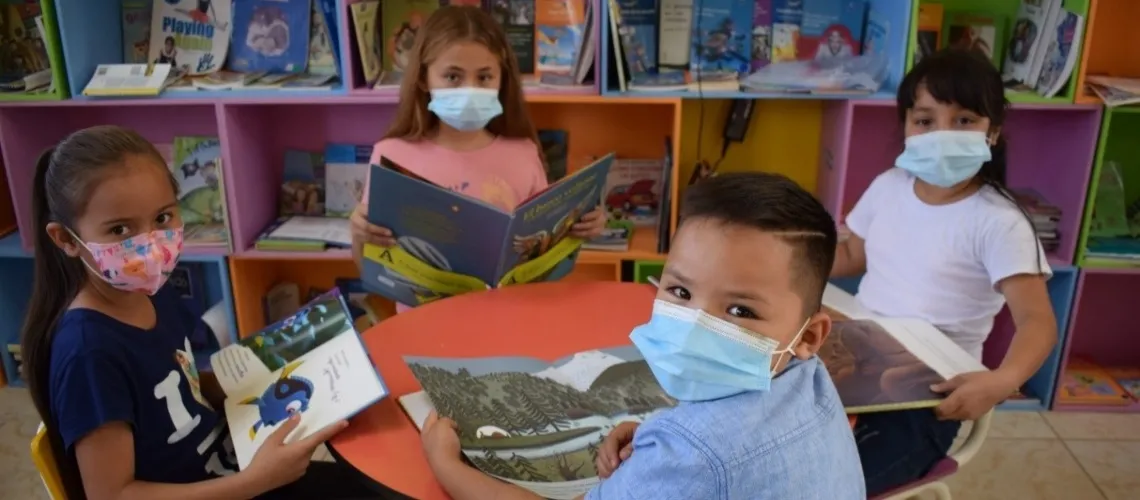Reaching vulnerable families and improving preschools in Honduras

Originally published on World Bank Blogs on 3 August, 2023.

With close to 80 percent of age-10 children in Honduras experiencing learning poverty—which means that they are unable to read and understand a simple text— it’s never been more critical to expand children’s access to books and improve opportunities for children to learn and read at home.
Reading is an essential skill that unlocks the door to learning in every other area. Children need to learn to read before they can read to learn, and they need support at home and in school to foster a love of reading and build important foundational literacy skills. Parents and communities are also more likely to be involved in children’s learning when they have access to books in a language they know: global evidence consistently shows that students learn more in the language they understand best.
Accessing quality books and learning materials
The Read@Home initiative was created to support countries and tackle learning poverty by addressing some of the challenges that prevent children from accessing quality, age-appropriate books and learning materials. The initiative targets hard-to-reach families with children ages 3-12 and works to deliver reading and learning materials quickly, efficiently, with support to help parents and other caregivers support with children’s learning.
In Honduras, Read@Home is supporting vulnerable families and strengthening the quality of early childhood education. It also contributes to key actions that Honduras and other countries are taking across the Latin America region to reverse lost learning as a result of long school closures during the COVID-19 pandemic. There are four components to the effort in Honduras:
- Improving access to reading materials in home languages. Responding to the Ministry of Education’s request to expand reading materials into indigenous and Afro-Honduran languages, Read@Home partnered with Room to Read to work with the government and expert Honduran translators to translate 15 existing book titles developed in Spanish with Honduran authors and illustrators into Miskito and Garifuna. These are some of the first storybooks available in these languages and could be used by families and educators in neighboring countries who speak the same languages.
- Making books free and accessible for all. It can be difficult to find free and open-source materials in a print-ready format so that governments, organizations, educators, and families can download and print what they need, when they need it. To ensure these stories are readily available, Read@Home worked with Room to Read to convert titles in Miskito, Garifuna, and Spanish into a print ready format. These titles are available on the Early Learning Resource Network, an online platform launched in 2022 to help governments and education partners access free, open-licensed children’s books and instructional materials for foundational literacy and numeracy programs.
- Expanding access to quality storybooks at home. Read@Home partnered with Plan International to print over 200 titles for children from preschool age through 6th grade, including the titles developed by Room to Read. Over 8,000 storybooks were distributed to more than 30,000 children and their families through 40 school and public libraries in 10 municipalities of the Lempira Department, the country’s poorest department.
- Expanding access to quality storybooks in preschools. Soon these storybooks will reach thousands more children and families in Honduras. Read@Home is supporting the World Bank’s Early Childhood Education Improvement Project to transform the quality of education in Honduras and equip children for school success. The project will develop a quality preschool model, support preschool educators with training, updated curriculums, improve learning environments, and provide quality, culturally relevant, learning materials and books to use during children’s story time to promote early literacy development, and make learning fun. Read@Home is providing book procurement assistance to the Honduran Ministry of Education to speed up the process of buying books, optimize technical specifications, and reduce costs to distribute storybooks to public preschools in the country.
Education is a right. Providing children with the opportunity to access books is a necessary first step to realize that promise.




